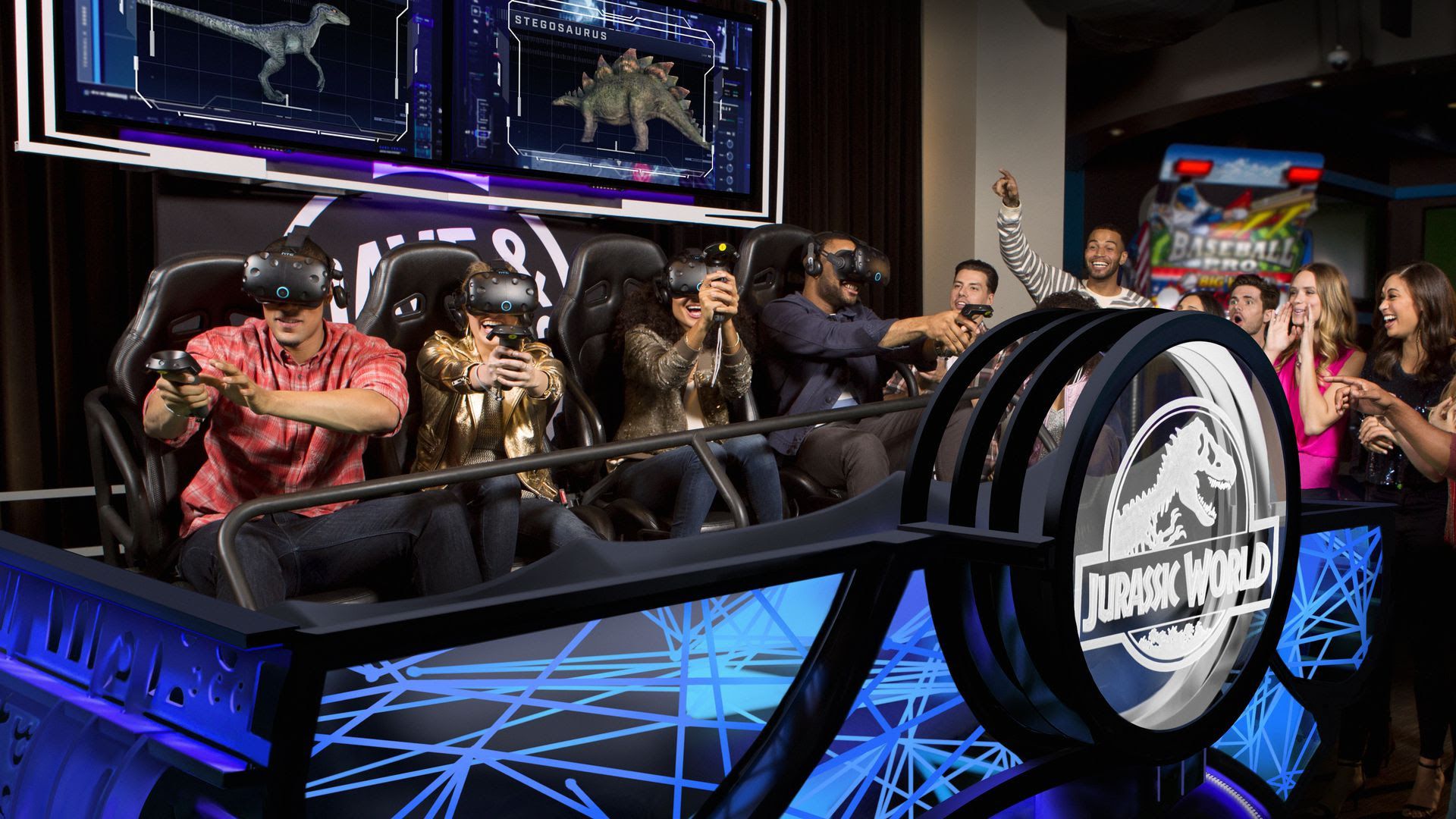Destination VR is the place to be
Add Axios as your preferred source to
see more of our stories on Google.

The Jurassic World VR experience. Photo: The Virtual Reality Company
With consumer virtual reality headset sales not living up to the original hype, there is growing interest in what is known as destination VR — fixed locations where people can try out a specific experience. Such installations are coming soon to a mall, theater or restaurant near you, if they aren't there already.
Why it matters: By virtue of dedicated space and being able to justify the cost over many patrons, destination VR efforts can often provide an experience well ahead of what even a traditional high-end home system can offer. As such, it's a glimpse of where the industry is headed.
Jurassic World VR Expedition is the most recent example of this. It's an experience arriving at more than 100 Dave & Buster's locations and produced by the Virtual Reality Company, an early player in destination VR.
- Jurassic World VR Expedition is a five-minute, multiplayer experience that lets four people compete against one another to capture lost dinosaurs. It uses a custom motion simulator with HTC's Vive headsets.
The bottom line: Destination VR is important because, for many people it's their first real experience with VR. The Jurassic Park attraction should be a good test of whether the notion has legs, bringing a popular franchise to a place that people already go for entertainment.
- "This will be a great barometer for the model we are going for," says Robert Stromberg, co-founder and chief creative officer of the Virtual Reality Company.
More destination VR examples:
- Birdly — On display at last month's Code Conference, Birdly uses a traditional VR headset, but has people lie down in a contraption that lets you fly like a bird by leaning and tilting your wings.
- The Void — One of the early players in destination VR, the Utah-based effort has evolved over the years. The Void's most recent project, a Star Wars-themed game, was at TED this year and let people join in the action in a battle against stormtroopers.
- iFly — The indoor skydiving venue recently added a VR component to let people recreate plunging over iconic locations.
- Six Flags — The amusement park chain is using VR to breathe new life into some of its older roller coasters.
What's next: VR will extend to beyond the headset. Startup Immersive Artistry is transforming a spot on the Las Vegas strip into a $100 million multi-sensory experience that will merge live action and holograms to transport attendees to an Asian street market, complete with food, music and more.
- Lollapalooza founder Perry Farrell is part of the team behind the effort, due to open in August 2019. They envision a family-friendly daytime experience that will cost around $30 and an evening adults-only fare that will start at $60.
"We want to take large groups of people and transport them into places they could never go."— Immersive Artistry CEO Cary Granat tells Axios.
